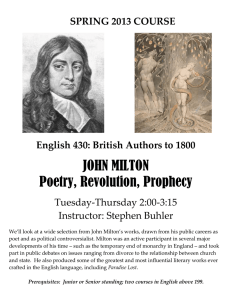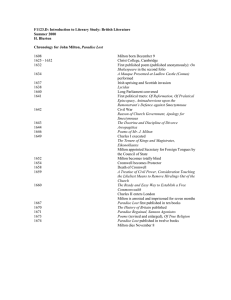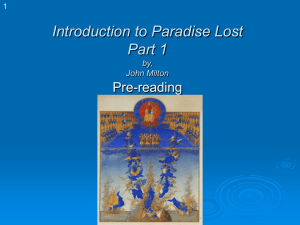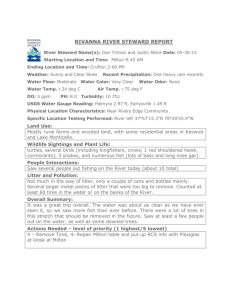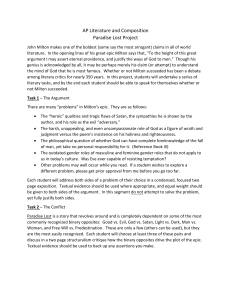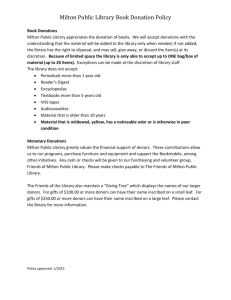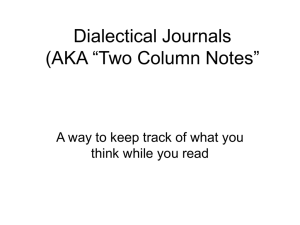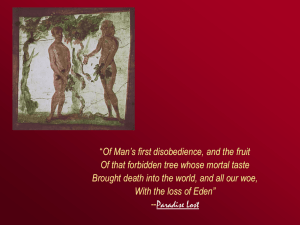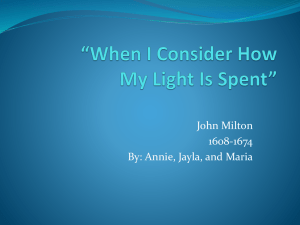Essential backgrounds for reading Milton.
advertisement
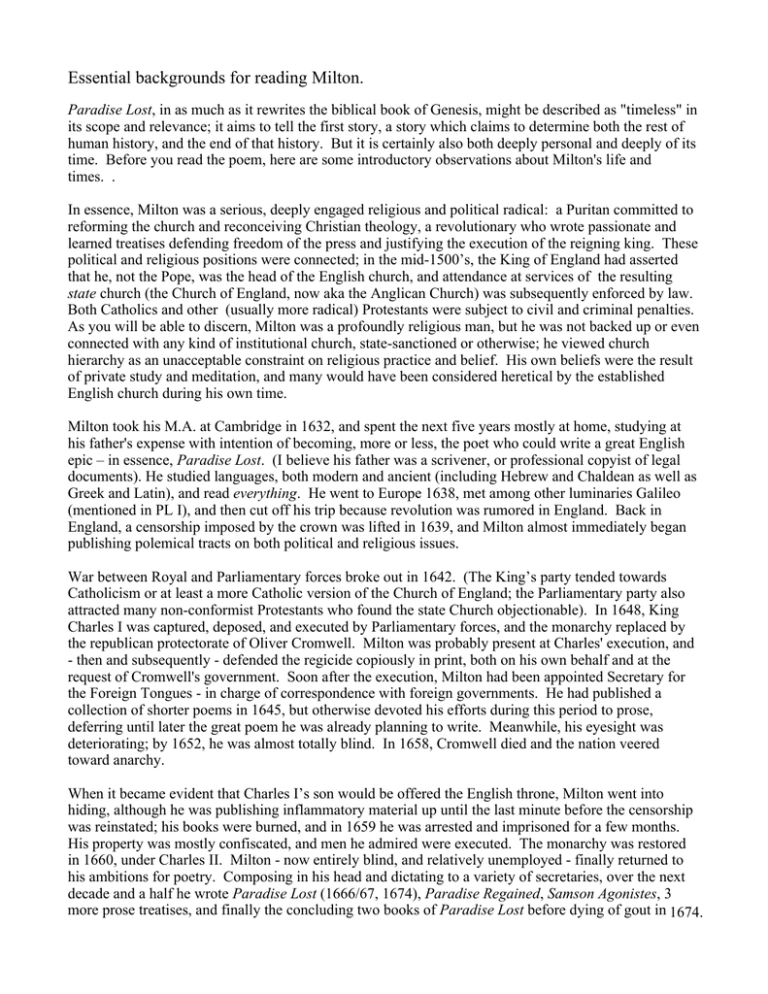
Essential backgrounds for reading Milton. Paradise Lost, in as much as it rewrites the biblical book of Genesis, might be described as "timeless" in its scope and relevance; it aims to tell the first story, a story which claims to determine both the rest of human history, and the end of that history. But it is certainly also both deeply personal and deeply of its time. Before you read the poem, here are some introductory observations about Milton's life and times. . In essence, Milton was a serious, deeply engaged religious and political radical: a Puritan committed to reforming the church and reconceiving Christian theology, a revolutionary who wrote passionate and learned treatises defending freedom of the press and justifying the execution of the reigning king. These political and religious positions were connected; in the mid-1500’s, the King of England had asserted that he, not the Pope, was the head of the English church, and attendance at services of the resulting state church (the Church of England, now aka the Anglican Church) was subsequently enforced by law. Both Catholics and other (usually more radical) Protestants were subject to civil and criminal penalties. As you will be able to discern, Milton was a profoundly religious man, but he was not backed up or even connected with any kind of institutional church, state-sanctioned or otherwise; he viewed church hierarchy as an unacceptable constraint on religious practice and belief. His own beliefs were the result of private study and meditation, and many would have been considered heretical by the established English church during his own time. Milton took his M.A. at Cambridge in 1632, and spent the next five years mostly at home, studying at his father's expense with intention of becoming, more or less, the poet who could write a great English epic – in essence, Paradise Lost. (I believe his father was a scrivener, or professional copyist of legal documents). He studied languages, both modern and ancient (including Hebrew and Chaldean as well as Greek and Latin), and read everything. He went to Europe 1638, met among other luminaries Galileo (mentioned in PL I), and then cut off his trip because revolution was rumored in England. Back in England, a censorship imposed by the crown was lifted in 1639, and Milton almost immediately began publishing polemical tracts on both political and religious issues. War between Royal and Parliamentary forces broke out in 1642. (The King’s party tended towards Catholicism or at least a more Catholic version of the Church of England; the Parliamentary party also attracted many non-conformist Protestants who found the state Church objectionable). In 1648, King Charles I was captured, deposed, and executed by Parliamentary forces, and the monarchy replaced by the republican protectorate of Oliver Cromwell. Milton was probably present at Charles' execution, and - then and subsequently - defended the regicide copiously in print, both on his own behalf and at the request of Cromwell's government. Soon after the execution, Milton had been appointed Secretary for the Foreign Tongues - in charge of correspondence with foreign governments. He had published a collection of shorter poems in 1645, but otherwise devoted his efforts during this period to prose, deferring until later the great poem he was already planning to write. Meanwhile, his eyesight was deteriorating; by 1652, he was almost totally blind. In 1658, Cromwell died and the nation veered toward anarchy. When it became evident that Charles I’s son would be offered the English throne, Milton went into hiding, although he was publishing inflammatory material up until the last minute before the censorship was reinstated; his books were burned, and in 1659 he was arrested and imprisoned for a few months. His property was mostly confiscated, and men he admired were executed. The monarchy was restored in 1660, under Charles II. Milton - now entirely blind, and relatively unemployed - finally returned to his ambitions for poetry. Composing in his head and dictating to a variety of secretaries, over the next decade and a half he wrote Paradise Lost (1666/67, 1674), Paradise Regained, Samson Agonistes, 3 more prose treatises, and finally the concluding two books of Paradise Lost before dying of gout in 1674. MIT OpenCourseWare http://ocw.mit.edu 21L.705 Major Authors: John Milton Spring 2008 For information about citing these materials or our Terms of Use, visit: http://ocw.mit.edu/terms.
